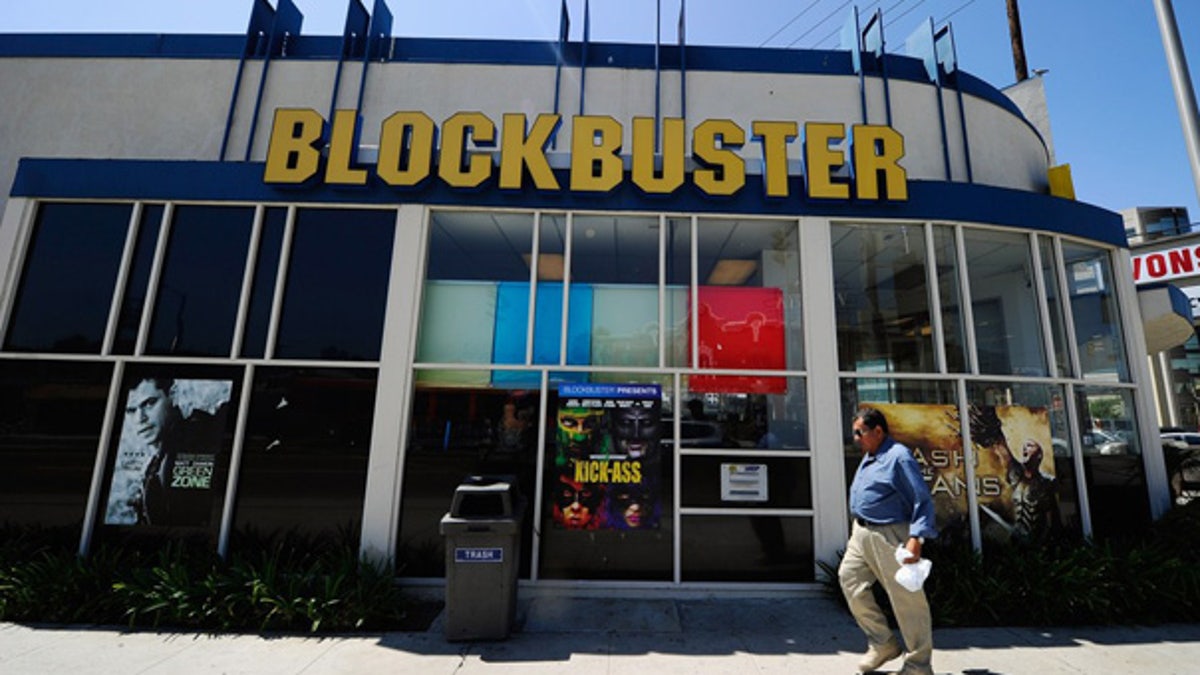
Aug. 27: People walk past a Blockbuster store in Los Angeles, California (AFP)
Blockbuster Inc. announced early Thursday that the company and its U.S. subsidiaries have filed voluntary Chapter 11 petitions with the U.S. Bankruptcy Court for the Southern District of New York, hurt by major shifts in the way consumers view movies and media.
Under an agreement with a group of bondholders, Blockbuster said it plans to reduce its debt load from more than $900 million currently to an estimated $100 million or less, by exchanging senior debt for equity in the reorganized company. Under the plan, Blockbuster said that there would be no recovery by the current holders of subordinated debt, preferred stock or common stock.
The company also said it has secured a commitment for $125 million in new debtor-in-possession financing from senior noteholders.
While the overall pace of bankruptcies has slowed of late, companies facing secular economic changes still face problems. Blockbuster's plight comes amid major shifts in how consumers view content. U.S. consumers now get many of their movies through vending machines operated by Redbox, a unit of Coinstar Inc., and from mail-order and online streaming giant Netflix Inc. Consumers have also gravitated toward cable on-demand services and getting films and television shows through gadgets such as Apple Inc.'s iPod and iPad.
Blockbuster said its U.S. stores, DVD vending kiosks, by-mail and digital businesses, remain open and will operate normally. Franchisees and non-U.S. operations were not included in the bankruptcy filing, the company said.

